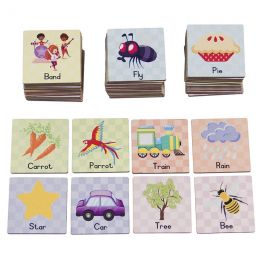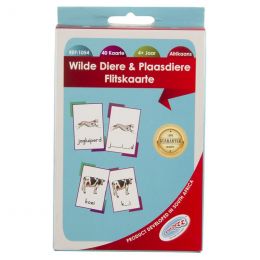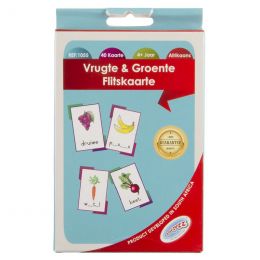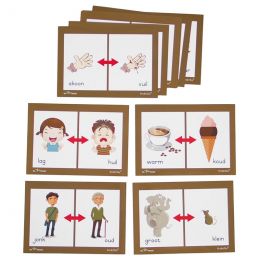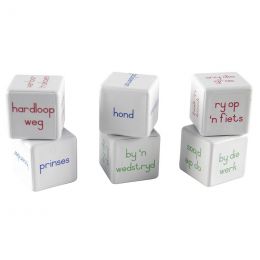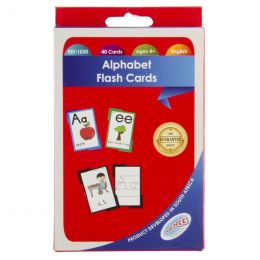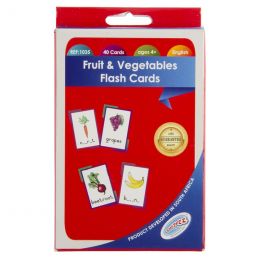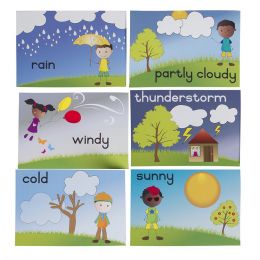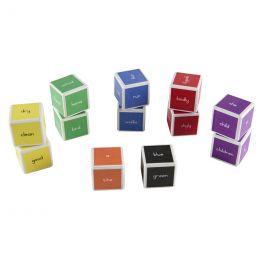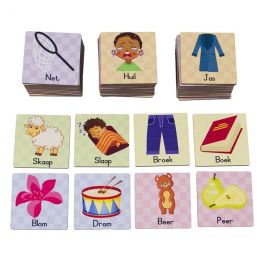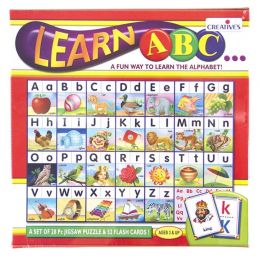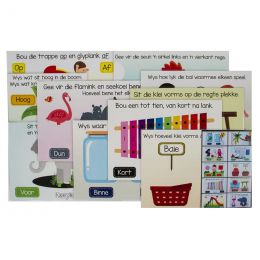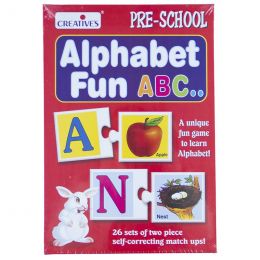Idiom of the Week Pocket
The mysteries of idioms become child's play when you explore a new one each week. Unlock a treasure trove of common idiomatic expressions!
Idioms are fun and useful phrases, but they can drive confused students up a wall! Teaching students about these expressions will be a piece of cake with this fun vocabulary development aid with a twist — appealing, large-format cartoons that will tickle the funny bone and help students understand these common phrases in their reading and use them in their writing and speaking.
Engages students with funny illustrated cards that help them tackle the differences between literal and figurative language. A light-hearted way to enrich vocabulary and improve comprehension for all students, particularly for learner’s form whom English is their Second Language
The Idiom of the Week Chart measures 33cm W x 70cm H and features metal grommets for hanging.
- Includes 20 double–sided idiom cards featuring full–colour illustrations and measuring.
- Provides 2 clear display pockets—one for the week's idiom card and the other for a student's illustrated sentence using the idiom
IDIOM MEANING
- It’s raining cats and dogs - It’s raining very hard.
- They’re in hot water - They’re in trouble.
- He’s all tied up - He’s very busy.
- I’m all ears - I’m listening carefully.
- Put on your thinking cap! - Try to solve a problem.
- He has butterflies in his stomach - He’s nervous.
- They’re going bananas! - They’re behaving in a crazy way.
- She’s down in the dumps - She’s very sad.
- He’s catching some z’s - He’s sleeping.
- He’s a couch potato - He watches too much TV.
- Don’t let the cat out of the bag - Don’t tell the secret.
- It goes in one ear and out the other - He doesn’t pay attention.
- Stop pulling my leg! - Stop teasing me.
- Hold your horses - Be patient.
- Stay on your toes - Pay close attention.
- She has a heart of gold - She is a kind, generous person.
- I’m on top of the world - I’m very happy.
- His head is in the clouds - He’s daydreaming.
- I put my foot in my mouth - I said something I shouldn’t have.
- She’s been hitting the books - She’s been studying hard.
- Don’t open a can of worms - Don’t start trouble.
- Don’t bury your head in the sand - Don’t ignore things.
- She gave me the cold shoulder - She ignored me.
- She has egg on her face - She’s embarrassed.
- He’s a barrel of laughs - He’s funny.
- She has ants in her pants - She can’t sit still.
- Get off your high horse - Stop acting conceited.
- She laughed her head off - She laughed and laughed.
- The cat’s got her tongue - She’s so shy she can’t speak.
- She got cold feet - She lost the courage to act.
- I’m feeling under the weather - I’m feeling sick.
- I’m green with envy - I’m very jealous.
- It’s a piece of cake - It’s easy to do.
- She’s afraid of her own shadow - She’s easily frightened.
- It costs an arm and a leg - It’s expensive.
- I had to eat my words - I had to take back what I said.
- That knocked my socks off - That was really amazing.
- He’s a big cheese - He’s a very important person.
- Don’t cry over spilled milk - Don’t cry over what can’t be undone.
- We see eye to eye - We agree.
Using Idiom of the Week
BEFORE YOU BEGIN
Tell students to put on their thinking caps. Then ask them what they know about phrases such as “put on your thinking cap,” “it’s raining cats and dogs,” and “going bananas.” Encourage them to draw on their own experiences hearing these idioms and any others.
List the idioms on the board, adding ones that students mention. For each of the idioms mentioned, ask students to tell how the idiom was used and how its context helped them figure out its meaning.
Finally, work with students to develop a definition of idioms and post it on chart paper. Here is an example: An idiom is a group of words that means something different from what the words say.
No customer reviews for the moment.





